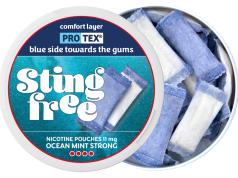Scientific studies keep indicating that electronic cigarettes are at least 95% safer than regular cigarettes, and some studies quote similar percentages for HnB devices. Therefore there isn’t much difference in terms of health risks between the two devices. However interestingly, e-cigarettes which do not contain any tobacco are regulated as tobacco products, whereas HnB devices which do contain tobacco, apparently are not. How does this make any sense?
A press release by ECigIntelligence, an independent data analysis resource for the tobacco-alternatives industry pointed out that big tobacco companies may soon be able to advertise these devices, and even sponsor a major racing events, while the well meaning small vaping businesses which focus solely on smoking cessation, are still banned from advertising their products in any way.
Tim Phillips ECigIntelligence managing director said: “Heated-tobacco, ironically given its name, is not considered to fully be a tobacco product under many regulatory definitions. Although the consumables contain tobacco, the manufacturers have argued that the electronic heating device is a separate item. This means that, at the very least, the electronic heating elements of the products can be advertised.”
PMI rumored to be featuring as a sponsor in some racing events
Phillips added that Marlboro maker PMI is expected to run IQOS ads with Ducati in the motorcycle racing MotoGP and that it may also be sponsoring Alfa Romeo on its return to Formula 1.
“Regulators may try to close the loopholes – perhaps by using laws prohibiting the advertisement of objects that resemble cigarettes in jurisdictions where such rules have been passed or be calling the items tobacco paraphernalia – putting them in a category similar to things like cigarette paper. But Big Tobacco appears confident enough to press ahead with campaigns,” explained Phillips.












